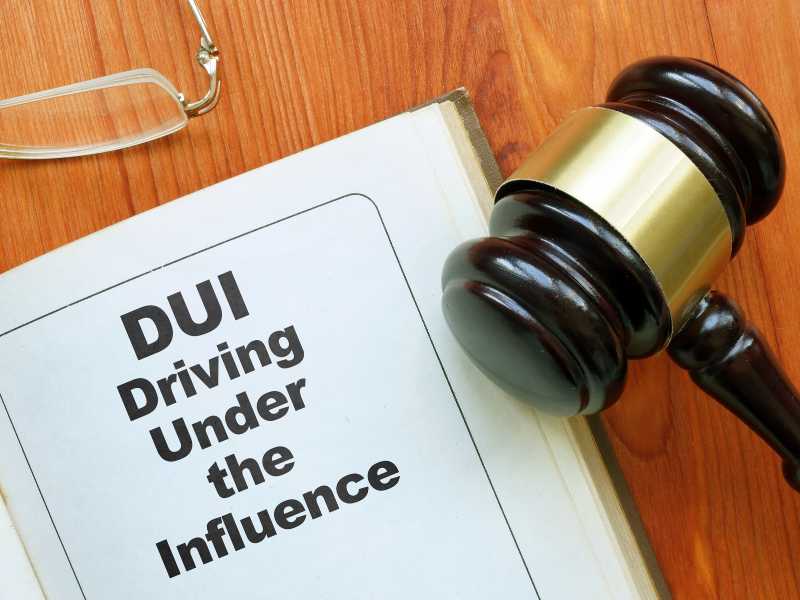DUI Checkpoints In California: What You Need to Know to Protect Your Rights

If you’re planning to drive in California, you must be aware of DUI checkpoints. These are temporary roadblocks set up by law enforcement officers to check for drivers who may be under the influence of alcohol or drugs. While DUI checkpoints may seem like an inconvenience, their purpose is to keep everyone on the road safe.
DUI checkpoints operate on a simple principle: they stop every vehicle that passes through a designated area and check for signs of intoxication. If you’re stopped at a checkpoint, officers will ask for your license and registration and may ask you to perform field sobriety tests or take a breathalyzer test. If you’re found to be over the legal limit, you’ll be arrested and charged with DUI.
It’s important to understand how these checkpoints work, your rights, and the consequences of a DUI conviction if you plan on driving in California.
How DUI Checkpoints Work
Understanding how sobriety checkpoints operate can help drivers feel more prepared and informed when encountering one.
When approaching a DUI checkpoint, you’ll first be stopped by law enforcement officers who’ll ask for your driver’s license, registration, and insurance. The officers may also ask if you’ve been drinking or using drugs before driving.
After answering the officer’s questions, you may be asked to perform field sobriety tests such as walking in a straight line or standing on one foot. These tests are designed to assess your coordination and balance.
If the officer suspects that you’re under the influence of alcohol or drugs, they may administer a breathalyzer test to check your blood alcohol concentration level. It’s important to note that breathalyzer accuracy can vary due to factors such as calibration and maintenance of the device.
Are DUI Checkpoints Legal in California?
Yes, DUI checkpoints are legal under California law and the U.S. Constitution. However, specific laws govern the use of DUI checkpoints by law enforcement agencies.
Here are some key points to consider:
- Checkpoints must be publicly advertised beforehand.
- The location of the checkpoint should be reasonable.
- Officers must use a neutral formula when selecting which vehicles to stop.
- Safety precautions like flashing lights and warnings must be visible well before the checkpoint.
- Drivers must not be stopped for more than the time needed for officers to ask questions and check for impairment.
Despite these rules, many argue that DUI checkpoints violate their Fourth Amendment rights against unreasonable searches and seizures. Others believe that the benefits of preventing drunk driving outweigh any potential infringement on individual liberties. As such, the debate over the legality of DUI checkpoints is likely to continue for years to come.
What to Expect at a DUI Checkpoint
At DUI checkpoints, you can expect to see police officers stopping vehicles at random and asking drivers to perform sobriety tests.
Here’s what you can expect at a DUI checkpoint:
- Police officers will wear reflective vests and stand near the road.
- They’ll signal you to stop your vehicle and ask for your driver’s license, registration, and proof of insurance.
- You may be asked to step out of your car and perform field sobriety tests such as walking in a straight line or balancing on one foot.
- The officer may administer a breathalyzer test if you’re suspected of driving under the influence.
When passing through a sobriety checkpoint, it’s important to know your rights as a driver. You have the right to remain silent and refuse any field sobriety tests.
However, if you refuse to take a breathalyzer test, your license may be suspended for up to one year under California law.
Refusing a breathalyzer test can also be used against you in court as evidence of guilt. If you choose to take the test and it shows that your blood alcohol content is over the legal limit of 0.08%, you will likely be arrested for driving under the influence. Knowing your rights at a DUI checkpoint can help protect you from incriminating yourself while still protecting your legal rights as a driver.
Consequences of DUI Conviction
After being arrested for driving under the influence, you may face severe consequences that can impact your life long-term. Firstly, there’s a financial impact, as fines and legal fees can quickly add up. Apart from this, if you’re found guilty of DUI, you may also be required to attend alcohol education programs or even install an ignition interlock device in your car – all of which come with additional costs.
The consequences of DUI aren’t just financial – they can also have long-lasting effects on your personal and professional life. A DUI conviction will show up on background checks and could result in job loss or difficulty finding employment. Moreover, it could affect custody battles in family court cases or increase insurance premiums. In short, getting behind the wheel while intoxicated can have severe repercussions beyond just a night in jail.
Possible Defenses Against DUI Charges
To challenge DUI charges, you may want to explore potential defenses with the help of a knowledgeable attorney. Some possible defenses include questioning the accuracy and reliability of blood alcohol tests or challenging the validity of field sobriety tests. An experienced attorney can also review police procedures during your arrest and look for any mistakes or violations that could lead to your charges’ dismissal.
When it comes to chemical testing, several factors can impact its accuracy. For example, improper equipment calibration or mishandling of samples can lead to false results. Similarly, field sobriety tests are not always reliable indicators of intoxication and can be affected by various factors, such as medical or environmental conditions.
Working with an experienced DUI defense attorney is crucial in exploring all potential defenses and building a strong case for your defense.
Call Kolacia Law for Strong DUI Defense
If you or a loved one have been arrested for a DUI at a checkpoint in California, don’t wait to seek legal guidance. Contact Kolacia Law today for a free consultation, and let us fight for your rights and freedom.
Our experienced DUI lawyers will work tirelessly to build a strong defense and minimize the impact of a DUI charge on your life. Don’t let a DUI checkpoint ruin your future – contact us today.
